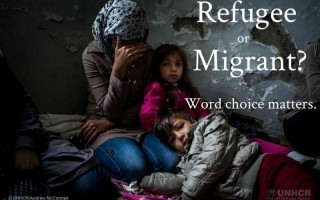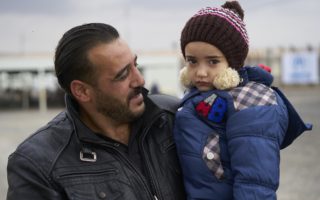
Ottawa, CANADA – In response to the announcement by the Government of Canada of the 2022-24 Immigration Levels Plan, Rema Jamous Imseis, UNHCR Representative in Canada, issued the following statement:
“At a time of record forced displacement in the world, UNHCR welcomes these additional resettlement spaces. This will allow more vulnerable refugees to find safety and a new home. We also thank Canada for ensuring that new Afghan resettlement initiatives do not come at the expense of other populations in need of life-saving resettlement.”
Notes :
- 1.47 million refugees are in need of resettlement in 2022.
- The 2022 projections are based on several assessments of the protection needs and at-risk profiles across refugee populations, globally.
- Syrian refugees are among those with the highest resettlement needs, followed by refugees from the Democratic Republic of the Congo, South Sudan, Afghanistan and Eritrea.
- Among cases submitted by UNHCR to resettlement states for consideration are refugees with legal and physical protection needs, survivors of violence, women, adolescents and children at risk, LGBTIQ+ people at risk, those with medical needs and others who face precarious circumstances and conditions.
- Nearly ninety per cent of the world’s refugees are hosted in developing countries whose capacities were overstretched even before the pandemic and are now forced to contend with worsening humanitarian conditions for local and displaced communities alike.
- In 2020, refugee resettlement levels were at their lowest in 20 years. Fewer than 35,000 refugees were resettled in 2020 – a result of a reduced number of resettlement places and the impact of the Covid-19 pandemic. This is one-third of the number resettled in 2019 (107,700) and 2018 (92,400).
- Pandemic-induced border closures and travel restrictions necessitated a temporary hold on many resettlement movements in 2020, with some countries still struggling to regain their previous capacity to receive refugees.
- Despite the challenges, UNHCR operations and several resettlement states were able to be more flexible when processing and facilitating resettlement. This ensured the continuity of the program and the life-saving transfers of refugees at risk.
- 82.4 million people living in forced displacement. The global forcibly displaced population includes:
- 26.4 million refugees (26 million in 2019) including:
- 20.7 million refugees under UNHCR’s mandate (20.4 million in 2019)
- 5.7 million Palestine refugees under UNRWA’s mandate (5.6 million in 2019)
- 48.0 million internally displaced people (45.7 million in 2019)
- 4.1 million asylum-seekers (4.1 million in 2019)
- 3.9 million Venezuelans displaced abroad (3.6 million in 2019)
For more information, please contact:
- In Ottawa, Gisèle Nyembwe, nyembwe@unhcr.org, +1 613-986-4300
- In Montreal, Levon Sevunts, sevunts@unhcr.org, +1 438 881 4865





